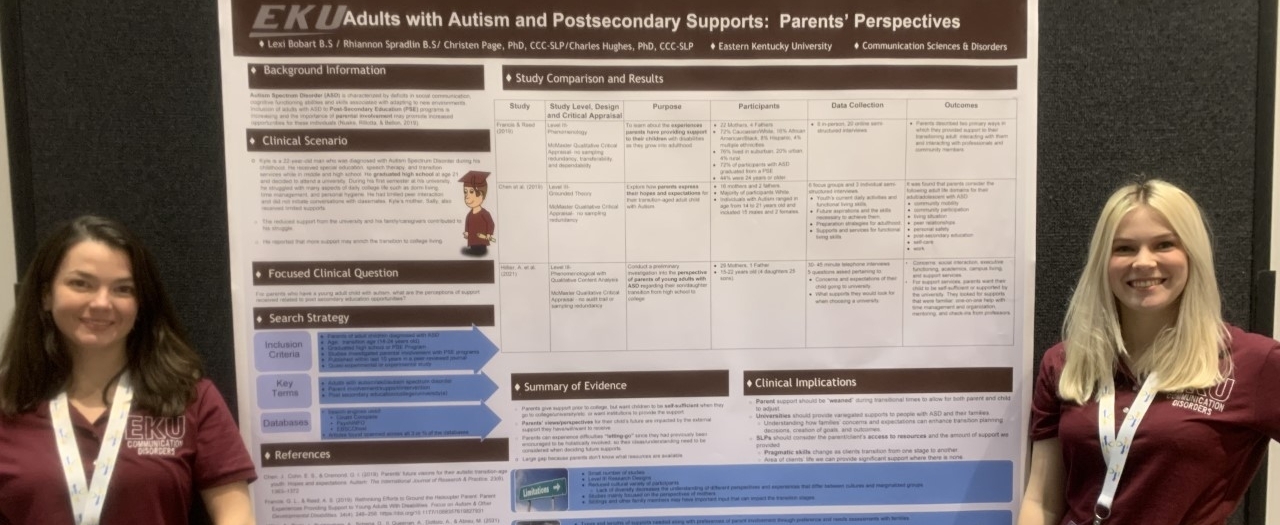Ensuring parents know the resources available to help their young adult child with autism spectrum disorder transition to college is the focus of a critically appraised topic research study by graduate students Rhiannon Spradlin and Lexi Bobart.
The communication sciences and disorders students chose this topic because they discovered a significant gap in the research.
“It is such an under-researched, underreported and underrepresented population,” Spradlin said. “Most people did come in contact with students with autism spectrum disorder while they were in elementary, middle and/or high school. However, once they graduate, people with ASD are often forgotten. I believe this is a large problem for our society. Just because they turn 21, that doesn’t mean they no longer need us or want our help and advocacy.”
Spradlin and Bobart will join more than 100 other students displaying their research during the annual EKU Scholars Week University Presentation Showcase, held Wednesday, April 13, from 2:30 until 4:15 p.m. in the Keen Johnson building.
The researchers acknowledge the assistance of their professors Drs. Christen Page and Charles Hughes during their project.
Bobart said their research indicated that parents of young adults with ASD sometimes find it difficult to know what resources are available once they are out of the K-12 environment.
“[Parents] expressed the desire for their child to be more self-sufficient,” she said, noting how few universities and other organizations offer resources and support mechanisms for these students.
The researchers said they feel universities can improve the diversity of their student populations if they will offer, utilize and advertise services to students with ASD.
“Inclusion is so important, and every individual deserves to have the same opportunities,” Bobart said.
While this study focused more on the parental perspective of what supports and resources are out there for helping their students with ASD, the researchers both know there is much more to discover from individuals with autism themselves and even from other family members.
Spradlin said she became interested in speech-language pathology as a career because of her exposure to children and adults who she has seen struggle to communicate and she desires to help.
“Communication is something that we take for granted every day and don’t truly understand the impact it can have on someone’s well-being when it is disordered or delayed. Something as simple as asking for water when thirsty or telling family you love them can be a struggle for our clients,” she said. “I want to teach them strategies to minimize their struggle and help my current and future clients to communicate with the world around them.”
